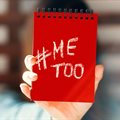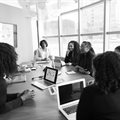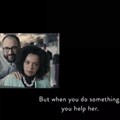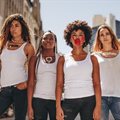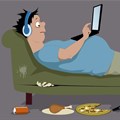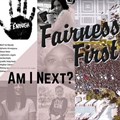#FairnessFirst: Taking a stand against GBV with Brothers For Life and #ItStartswithMe

According to a recent report by Bloomberg, South Africa has one of the highest rates of sexual violence in the world.
About 3,000 women in SA were murdered in 2018 – that’s one every three hours, which the World Health Organization (WHO) confirms is more than five times higher than the global average.
For a more contextual understanding of the problem over time, the most recent Saps (South African Police Service) data shows that despite a period of decline, rape and sexual assault is, once again, on the rise with 41,600 and 7,400 instances reported respectively, for 2019.
To put that in really stark terms, the police have logged 443,387 rapes over the past decade. The problem is likely understated because crimes of this nature tend to go unreported.

That’s why Wesley Mathew, Meltwater’s head of marketing for UKI and India, has started the crowdfunding campaign – aiming to raise R100,000 for programmes that seek to help change male-held beliefs and attitudes that contribute to violent behaviour against women. He says:
The time for complacency is over; it's time for men in South Africa to stand up - and I believe #ItStartsWithMe.All this while Mathew’s colleague Philippa Dods, marketing manager for Meltwater Africa, is gearing up to run the New York Marathon for Khayelitsha-based social justice non-profit organisation Nonceba, which provides a safe haven of accommodation, food, resources and counselling to mothers and children who have been raped and sexually abused.
That’s why he’s hoping for this to become a potential avenue for men to get involved.

A significant part of Brothers for Life sees men working with men to affect attitudes towards women, both through national-level public health communication campaigns and community and grassroots initiatives that seek to facilitate behaviour change.
Here, Mathew explains what inspired him to take a stand and collaborate with Brothers For Life, as well as why it’s so important for men to take a stand and not take offence when females say they don’t feel safe.
Let’s start with some context: There’s been quite a bit of backlash on the #MenAreTrash hashtag. Why is it so important for men to take a stand and not take offence when females say they don’t feel safe?
First off, I understand that no one likes being called "trash" on a personal level – but, as with any statement, it needs to be viewed in context.South Africa is wounded, and that hashtag is the symbolic representation of a lot of pain, frustration and fear all rolled into one. To me, #MenAreTrash is a clarion call for action on the part of men – not an attack on my character as a person.
What inspired you to take a stand and collaborate with #BrothersForLife?
A few things. I'd be lying if I said it wasn’t first and foremost serious concern for the women closest to me: my mom, my family and friends.
Of course, I recognise that there’s also a larger, more systemic problem that's intertwined with all sorts of other social maladies – including unemployment, poverty and education.
The way I look at it, however, is that you can either start somewhere and be part of the solution, or simply resign yourself to a bleak future outside of your control.
My conscience wouldn't allow for the latter, and I think people like Greta Thunberg are living examples of how individuals can spark monumental change. I think if we're all waiting on the government to do something about gender-based violence, we're going to be waiting a long time.
What’s your ultimate end-game goal for the crowdfunding campaign?
I think a lot of men feel powerless to do something about the issue of widespread gender-based violence; so firstly, I wanted to give guys a tangible route to make an impact if they wanted to.
Research shows that behavioural-change communication works; there's ample evidence in support of that.
Also, campaigns like Brothers for Life are notoriously underfunded, so I had also hoped that the exposure might lead to other donors getting on-board.
We need guys in SA to stand up, and start taking a proactive role in the fight against gender-based violence or we'll never move forward. These types of campaigns have been running in Kenya for years and have seen a great impact, so I sincerely believe they're worth standing behind.
Secondly, I hoped to incentivise more men to think of proactive ways to make a difference. If you don't have the financial means to support a charity, then perhaps volunteer your skills or time in a way that could help a relevant cause.
If you want to start closer to home, consider setting up a community watch programme in your neighbourhood or perhaps forming a WhatsApp group to monitor popular school routes or playground areas.
The fight against GBV is going to require battles on many fronts. We need to change certain male-held attitudes and beliefs that might act as precursors to violent behaviour against women.
At the same time, we have to mitigate physical risk to vulnerable parties, where possible. Being a good role model is simply the bare minimum, in my opinion.
 What has the response been like so far?
What has the response been like so far? We've raised over R16,000, so far, with super-limited promotion, which is genuinely heartwarming to see.
I think there will always be a contingent of people whose 'fight for change' will start and end with hollow social media posts, but those are not the men I care to engage with.
I'm speaking to the man who recognises that if we want to achieve real change in South Africa, then it starts with us as individuals.
That it does. If you'd like to get involved, you can donate here.










